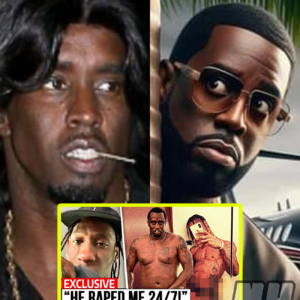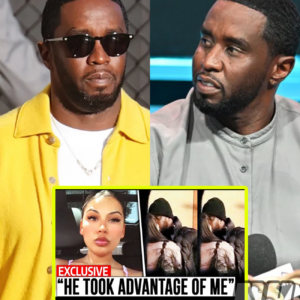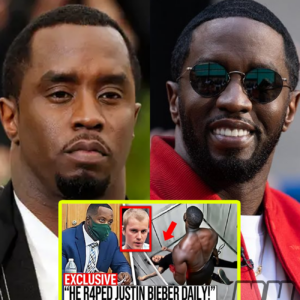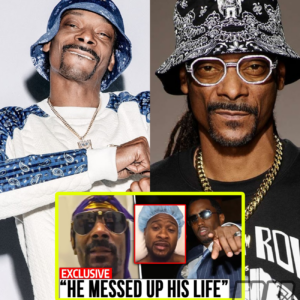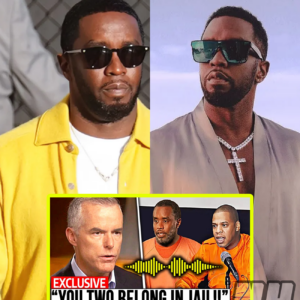The Dark Side of Fame: Allegations and Abuse in the Hip-Hop Industry

The glamorous veneer of the hip-hop industry often conceals a much darker reality. Recent revelations have brought to light a series of disturbing allegations against some of the genre’s most prominent figures, highlighting a culture rife with abuse, exploitation, and manipulation. This article delves into these allegations, focusing on the claims against music mogul Sean “Diddy” Combs and examining the broader implications for the hip-hop community.
The Acceptable Monsters of the Industry
In a revealing conversation, the concept of the “acceptable monster” in the music industry was discussed, with parallels drawn between figures like R. Kelly and Sean Combs. Both artists have faced severe allegations, yet their fame and influence provided a shield for their actions for a considerable time. The dialogue suggested a cyclical pattern of the industry designating certain individuals as scapegoats while ignoring others who continue similar behaviors .
Sean Combs: Allegations and the Culture of Abuse
Sean “Diddy” Combs, a titan in the music industry, has recently come under intense scrutiny following accusations of violent behavior and sexual misconduct. Former associate Jaguar Wright has been vocal about the endemic abuse within the industry, claiming that many offenders are known but remain protected by their status and connections . Wright’s allegations paint a picture of an industry where manipulation and abuse are rampant, and where powerful figures like Combs operate with near-impunity.
One of the most shocking revelations involves a leaked video from 2016, showing Combs allegedly beating his ex, Cassie Ventura. This incident is part of a broader pattern of behavior, with numerous accounts from former associates and industry insiders accusing Combs of creating an environment of fear and control .
The Exploitative Dynamics of Bad Boy Records
Jaguar Wright’s exposé extends to the inner workings of Combs’ Bad Boy Records. According to Wright, Combs intentionally recruited talentless individuals, transforming them into stars to ensure complete control over their careers. This strategy, she argues, was designed to keep artists dependent on the label and prevent them from asserting their autonomy .
Former producers and collaborators have also come forward with their experiences. Lil Rod, a producer who worked on Combs’ Grammy-nominated album “The Love Album: Off the Grid,” recounted the grueling work conditions and exploitative contracts. He described being forced to work for days without sleep and being offered a pittance for his contributions, all while Combs and his team tried to claim ownership of his work .
Industry-Wide Issues
The allegations against Combs are not isolated incidents but part of a broader, systemic problem within the hip-hop industry. Many artists and insiders have spoken out about the coercive and abusive practices that are often normalized in the quest for success and fame. The industry’s power dynamics create an environment where young, aspiring artists are vulnerable to exploitation by more established figures.
Wright’s accusations of “freak offs,” where drugs and alcohol were supplied to minors, and subsequent abuse took place, highlight the extreme levels of exploitation that occur behind closed doors. These allegations are reminiscent of other high-profile abuse cases, emphasizing the need for a cultural shift within the industry .
Calls for Change
The revelations about Combs and others in the industry have sparked calls for greater accountability and transparency. Advocates argue that the music industry needs to adopt stricter regulations to protect artists and ensure that abusers are held accountable for their actions. This includes re-evaluating the power structures that enable such behavior and providing better support for victims of abuse.
Moreover, there is a growing recognition of the need for cultural change within the hip-hop community. Influential figures like Kendrick Lamar and Jay-Z have begun addressing personal and social issues through their music, promoting themes of healing and self-improvement. These efforts represent a shift towards using hip-hop as a tool for empowerment rather than exploitation .
Conclusion
The allegations against Sean “Diddy” Combs and others in the hip-hop industry reveal a troubling culture of abuse and exploitation that has long been hidden behind the facade of fame and success. As more voices come forward, the need for systemic change becomes increasingly urgent. The industry must confront these issues head-on, ensuring that future generations of artists can pursue their dreams in a safe and supportive environment. Only then can the true potential of hip-hop as a positive cultural force be fully realized.
News
(VIDEO) Celebs that P Diddy EXPLOITED for Cash
P Diddy and the Dark Side of the Entertainment Industry The entertainment industry is no stranger to scandal and controversy, but the recent revelations surrounding P Diddy (Sean Combs) have brought to light a web of disturbing allegations and connections…
(VIDEO) Kevin Hart IN TEARS After New Leaks EXPOSE Him At Diddy’s After Parties!!
Kevin Hart: A Complex Journey Through Fame, Scandal, and Personal Growth Kevin Hart, the renowned comedian and actor, has led a life marked by both incredible professional success and deeply personal scandals. His journey from selling sneakers to becoming one…
(VIDEO) “He Ruined My Life” Former Diddy Employees TEAM UP To EXPOSE Him!
The Dark Side of Fame: Allegations Against Diddy and the Revelations from Former Employees The music industry is often glamorized for its glitz and glamour, but behind the scenes, it can harbor dark secrets and troubling behavior. Recently, Sean “Diddy”…
(VIDEO) “He’s Why Justin Bieber Is DEPRESSED!” Undercover FBI Agent EXPOSES Diddy
The Tumultuous History of Snoop Dogg, P. Diddy, and the East Coast-West Coast Rivalry Hip-hop history is fraught with feuds, friendships, and ever-changing alliances. Central to many of these stories are iconic figures such as Snoop Dogg and P. Diddy…
(VIDEO) “Diddy Did Usher Dirty Forever” Snoop Dogg EXPOSES Sean Combs!
The Tumultuous History of Snoop Dogg, P. Diddy, and the East Coast-West Coast Rivalry Hip-hop history is fraught with feuds, friendships, and ever-changing alliances. Central to many of these stories are iconic figures such as Snoop Dogg and P. Diddy…
(VIDEO) Undercover CIA Agent EXPOSES Diddy & Jay Z!
The Fall of P. Diddy: A Dismantling of Credibility and the Unfolding Legal Crisis Introduction In recent years, Sean “P. Diddy” Combs has found himself at the epicenter of numerous controversies and legal battles that have significantly tarnished his once-polished…
End of content
No more pages to load
